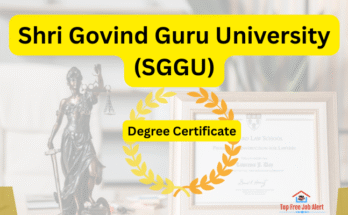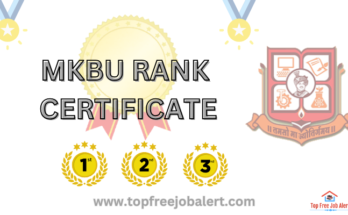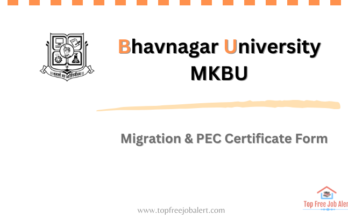The Maharaja Sayajirao University of Baroda (MSU), located in Vadodara, Gujarat, is a prestigious institution renowned for its extensive academic offerings. Among its various programs, the CCC (Course on Computer Concepts) is a popular certificate course designed to impart basic computer literacy to students, professionals, and individuals seeking to enhance their digital skills.
Overview of the CCC Course at MSU Vadodara
The CCC course is designed to provide foundational knowledge of computers and their applications, making it suitable for beginners with little to no prior experience. Recognised by the National Institute of Electronics and Information Technology (NIELIT), the course aligns with national standards for computer education. It is often a prerequisite for government jobs requiring basic computer proficiency in India. At MSU Vadodara, the CCC course is tailored to meet the needs of a diverse audience, delivered through a blend of theoretical lessons and practical training.
The duration of the course is typically short-term, spanning around 80 hours, which includes classroom instruction, hands-on practice, and assessments. It aims to equip learners with essential skills to operate computers, use common software, and navigate the digital world confidently.
Detailed Syllabus Breakdown
The CCC syllabus at MSU Vadodara follows the standard NIELIT framework, covering eight key modules. Below is a detailed exploration of each module:
01. Introduction to Computers
- Objective: Familiarise learners with the basics of computer systems.
- Topics:
- Definition and characteristics of a computer.
- Evolution and generations of computers.
- Types of computers (e.g., personal computers, laptops, servers)
- Basic components: Hardware (CPU, monitor, keyboard, mouse) and software (system vs. application software).
- Learning Outcome: Understanding the fundamental building blocks of a computer system.
2. Introduction to Operating Systems
- Objective: Teach the role of operating systems in managing computer resources.
- Topics:
- Definition and functions of an operating system.
- Popular operating systems (Windows, Linux, macOS)
- User interface: Desktop, icons, taskbar, and file explorer
- File and folder management (creating, renaming, deleting).
- Learning Outcome: Ability to navigate and manage files using an operating system like Windows.
3. Word Processing
- Objective: Develop skills in creating and editing text documents.
- Topics:
- Introduction to word processing software (e.g., MS Word, LibreOffice Writer).
- Document creation, formatting (fonts, alignment, spacing), and editing.
- Use of tables, bullets, and numbering.
- Saving, printing, and sharing documents.
- Learning Outcome: Proficiency in drafting professional documents such as letters or reports.
4. Spreadsheets
- Objective: Enable learners to perform calculations and data organisation.
- Topics:
- Introduction to spreadsheet software (e.g., MS Excel, Google Sheets).
- Cell structure, data entry, and basic formulas (sum, average, etc.).
- Formatting spreadsheets (borders, colours, and conditional formatting).
- Creating charts and graphs for data visualisation.
- Learning Outcome: Competence in handling numerical data and generating visual representations.
5. Presentations
- Objective: Train learners to create effective slide-based presentations.
- Topics:
- Introduction to presentation software (e.g., MS PowerPoint, LibreOffice Impress).
- Slide creation, layout design, and text insertion.
- Adding multimedia (images, videos, animations).
- Slide transitions and presentation delivery techniques.
- Learning Outcome: Ability to design and deliver engaging presentations for academic or professional purposes.
6. Introduction to the Internet and WWW
- Objective: Provide knowledge of online navigation and resources.
- Topics:
- Basics of the internet, web browsers (Chrome, Firefox), and search engines (Google).
- Understanding URLs, hyperlinks, and websites.
- Downloading and uploading files.
- Internet safety and security tips.
- Learning Outcome: Skills to browse the web efficiently and safely.
7. Email, Social Networking, and e-Governance Services
- Objective: Teach digital communication and access to online services.
- Topics:
- Email basics: Creating accounts, composing, sending, and receiving emails.
- Attaching files and managing email folders.
- Introduction to social media platforms (e.g., Facebook, Twitter).
- Overview of e-Governance portals (e.g., government websites for services like Aadhaar, tax filing).
- Learning Outcome: Proficiency in email communication and awareness of digital government services.
8. Digital Financial Tools and Applications
- Objective: Introduce learners to online financial transactions and tools.
- Topics:
- Basics of digital payments (UPI, mobile wallets, net banking).
- Using financial apps (e.g., Paytm, Google Pay).
- Cybersecurity in financial transactions (passwords, OTPs).
- Overview of e-commerce platforms.
- Learning Outcome: Confidence in performing secure online transactions.
Teaching Methodology and Assessment
At MSU Vadodara, the CCC course is delivered through a combination of:
- Lectures: Theoretical sessions to explain concepts.
- Practical Labs: Hands-on practice in computer labs to reinforce learning.
- Assignments: Tasks to apply skills, such as creating a document or spreadsheet.
| Sr No. | CCC Exam Syllabus | more Details |
|---|---|---|
| 01. | The Maharaja Sayajirao University (MSU) CCC (Course on Computer Concepts) | Visit more Information here |
| 02. | The Maharaja Sayajirao University (MSU) Official Website | Visit Here |
The assessment typically includes:
- Theory Exam: Multiple-choice questions (MCQs) testing conceptual understanding.
- Practical Exam: Tasks to evaluate hands-on skills, such as formatting a document or designing a presentation.
Successful completion requires passing both components, after which candidates receive an NIELIT-recognised certificate.
Read this: Maharaja Krishnakumarsinhji Bhavnagar University Apply for the Degree Certificate form
Relevance and Benefits
The CCC course at MSU Vadodara is highly relevant in today’s digital age. It caters to:
- Students: Enhancing employability by adding a recognised certification.
- Job Seekers: Meeting the computer literacy requirements for government and private sector jobs.
- Professionals: Upgrading skills for better workplace efficiency.
The course’s affordability, coupled with MSU’s reputation, makes it an attractive option for learners in Vadodara and beyond.
Conclusion
The CCC course syllabus at Maharaja Sayajirao University, Vadodara, is a well-rounded program that bridges the gap between beginners and the digital world. By covering essential topics like word processing, spreadsheets, internet usage, and digital payments, it ensures learners are equipped for both personal and professional success.
Whether you’re a student, a job aspirant, or someone looking to stay updated, this course offers a practical and accessible pathway to computer literacy. For more details or to enrol, visit the official MSU website or the dedicated CCC portal at ccc.msubaroda.ac.in.




